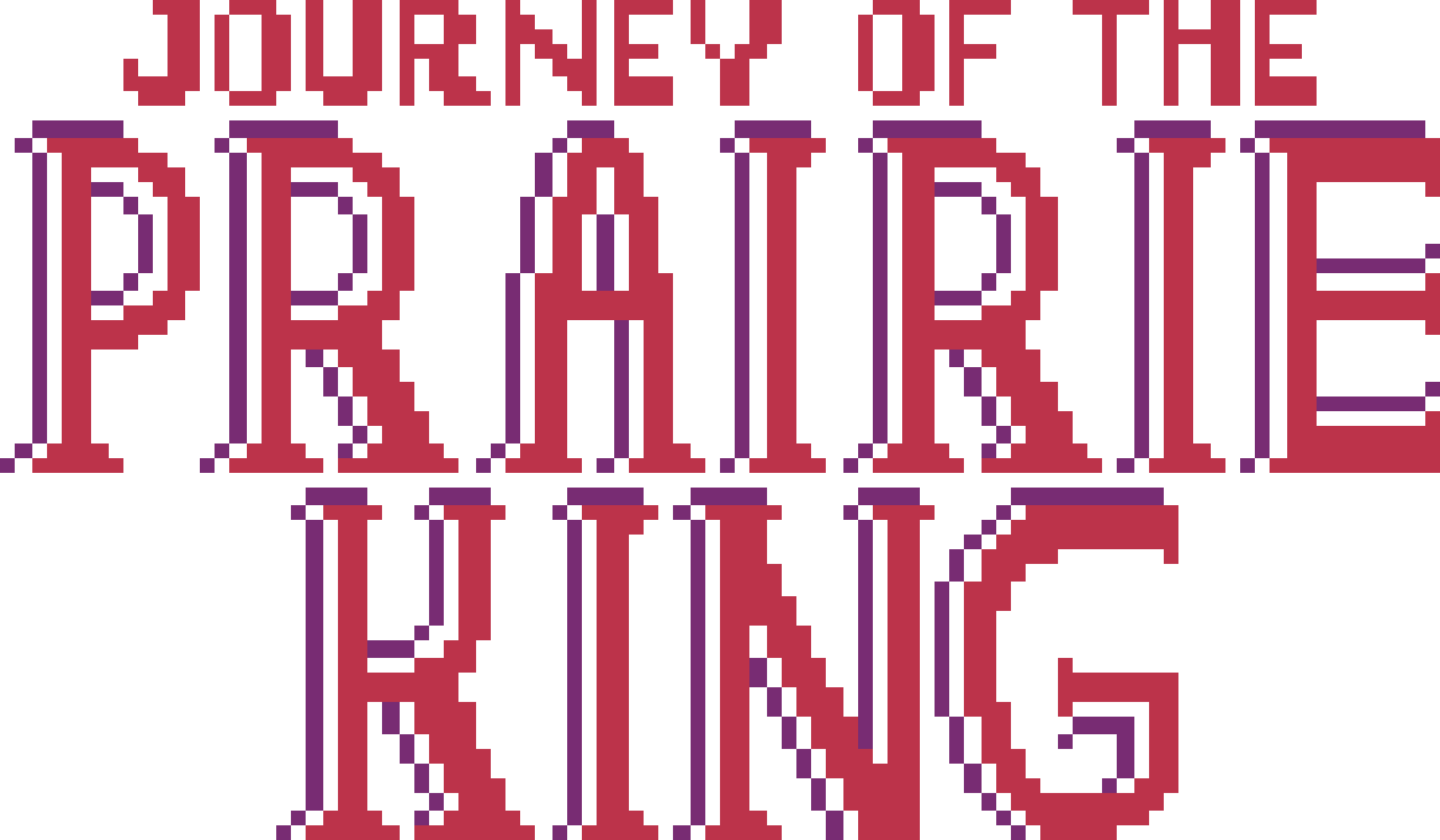Journey of the Prairie King is an intense, arcade-style twin-stick shooter that reimagines the classic Stardew Valley minigame into a full-fledged Wild West adventure. Battle bandits, supernatural foes, and challenging bosses across 10 uniquely designed rooms in your quest for redemption and glory.
- Features
- Installation
- Usage
- Gameplay
- Contributing
- History
- Credits
- License
- External Links & References
- Arcade-Style Twin-Stick Shooter: Dual controls for fluid movement and independent aiming.
- Wild West Aesthetic: Authentic retro visuals fused with modern design.
- Dynamic Levels: 10 unique rooms with escalating challenges, varied enemy types, and strategic power-ups.
- In-Game Store: Upgrade your abilities and tailor your gameplay experience.
- Permadeath Mechanics: Every playthrough is a fresh, challenging adventure.
- Operating Systems: Windows, macOS, or Linux.
- Hardware: Minimum 2GB RAM (4GB recommended) and updated graphics drivers.
- Download the Game: Visit the official releases page on GitHub to obtain the latest version.
- Extract Files: Unzip the downloaded file to your preferred directory.
- Run the Game:
- On Windows: Double-click
JotPK.exe - On macOS/Linux: Execute
./JotPKfrom the terminal
Ensure your system meets the minimum requirements before launching the game.
Upon launching the game, you will be greeted by an immersive main menu featuring:
- Start Game: Begin your Wild West adventure.
- Options: Customize settings for audio, controls, and display.
- How to Play: Get a guide on how to play the game.
- Credits: Learn about the team behind the project.
Controls:
- Movement:
WASDor Arrow Keys - Aiming & Shooting: Mouse (or right stick on gamepad) and left-click (or designated button)
- Power-Ups: Activate via assigned keys
- Pause: Press
Escto access the pause menu
For an in-depth tutorial, please refer to the in-game guide or visit our Official Wiki.
Experience the perfect blend of retro arcade action and modern game design:
- Levels: Navigate through 10 distinct rooms, each with its own set of challenges.
- Enemies: Encounter various types of foes—including a formidable boss in Room 10.
- Power-Ups: Collect boosts like rapid-fire, shields, and speed enhancements to turn the tide.
- In-Game Store: Use collected coins to upgrade your weapons and abilities.
Every playthrough is unique—master the mechanics, strategize your moves, and claim victory!
We welcome contributions to enhance Journey of the Prairie King. Follow these steps to get involved:
- Fork the Repository
- Create a Feature Branch:
git checkout -b feature/YourFeatureName- Commit Your Changes:
git commit -m "Add YourFeatureName"- Push to Your Branch:
git push origin feature/YourFeatureName- Submit a Pull Request
Please include documentation and tests for your changes.
Journey of the Prairie King was originally a beloved minigame in Stardew Valley, celebrated for its challenging twin-stick gameplay and nostalgic arcade charm.
Amphoreous is now undertaking the exciting task of recreating this classic game using the Raylib game engine in C. Our goal is to modernize the experience while preserving the retro essence that made the original so memorable. By leveraging Raylib's simplicity and power, we’re crafting a streamlined, high-performance version that can run on multiple platforms.
- Lead Programmer: Zakaria Hamdaoui (TheUnrealZaka)
- Art Director & Documentation Lead: Sofía Giner (Katy-9)
- Technical Director: Joel Martínez (Jowey7)
- Original Concept: ConcernedApe (Stardew Valley)
This project’s source code is licensed under the MIT License, while all other assets and content (including images, audio, and game design documents) are provided solely for educational purposes and remain the property of their respective owners.
Note: This documentation is developed as part of an academic assignment for the Video Game Design and Development degree project. All assets and content are for educational purposes only. Original game content is credited to its rightful owners and is not licensed under the MIT License.
For further assistance or inquiries, please open an issue on GitHub.
